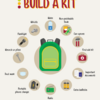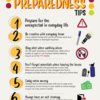Emergency Preparedness
Being well-informed about potential emergencies is the first step in ensuring that you know what to do and can take appropriate action to prioritize your safety.
Being well-informed about potential emergencies is the first step in ensuring that you know what to do and can take appropriate action to prioritize your safety.


Create an Emergency Kit:
Develop an Emergency Plan:
Stay Informed:
Know Your Surroundings:
Participate in Training:
Practice Drills:
Explore our website to delve into:
By knowing what to do in an emergency and how to access critical information, you enhance your safety and contribute to the overall resilience of our Temple community. Let’s work together to stay prepared and TUready!